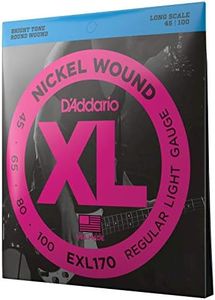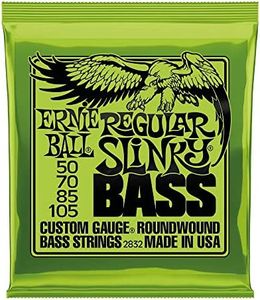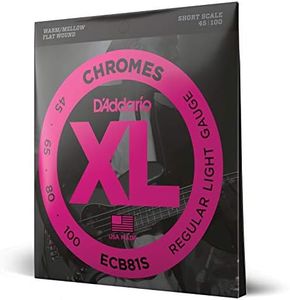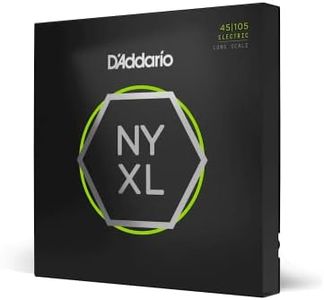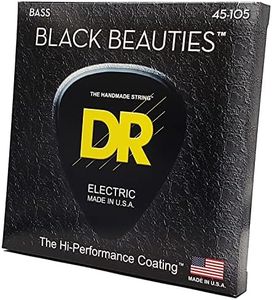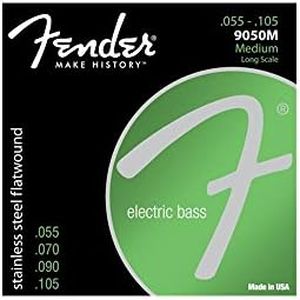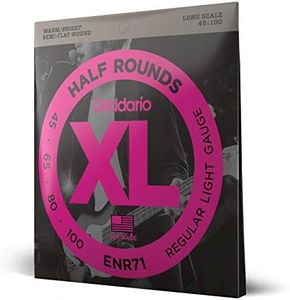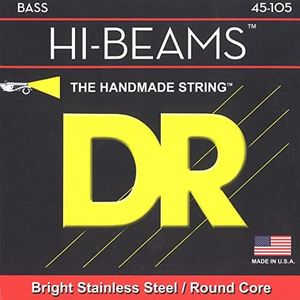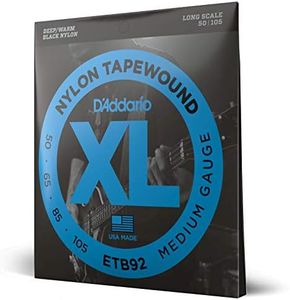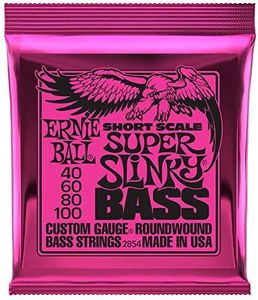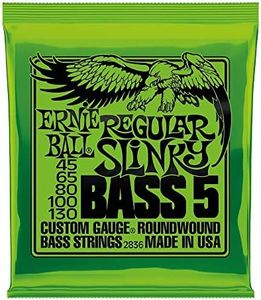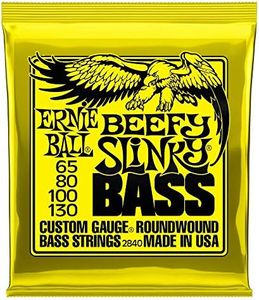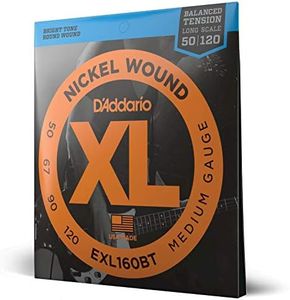We Use CookiesWe use cookies to enhance the security, performance,
functionality and for analytical and promotional activities. By continuing to browse this site you
are agreeing to our privacy policy
10 Best Bass Guitar Strings
From leading brands and best sellers available on the web.Recommended lists
Buying Guide for the Best Bass Guitar Strings
Choosing the right bass guitar strings can make a big difference in how your instrument feels and sounds. The strings you pick will affect your tone, playability, and even how long your strings last before needing replacement. It's important to think about the style of music you play, your experience level, and your personal preferences for feel and sound. By understanding the key features of bass guitar strings, you can make a choice that helps you get the most enjoyment and performance from your bass.String GaugeString gauge refers to the thickness of the strings, usually measured in thousandths of an inch. Lighter gauge strings are thinner, making them easier to press down and bend, which is great for beginners or players who like a lighter touch. Heavier gauge strings are thicker, providing a fuller sound and more tension, which can be better for genres like rock or metal where a strong, punchy tone is needed. If you play fast or intricate music, lighter gauges might suit you, while heavier gauges are good for powerful, steady playing. Think about your playing style and comfort when choosing the right gauge.
String MaterialBass strings are made from different materials, such as nickel-plated steel, stainless steel, or pure nickel. Nickel-plated steel strings offer a balanced tone and are popular for their versatility. Stainless steel strings are brighter and more resistant to corrosion, making them a good choice if you want a crisp sound or have sweaty hands. Pure nickel strings have a warmer, vintage tone. Your choice of material will affect both the sound and the feel of the strings, so consider what kind of music you play and what kind of tone you prefer.
Winding TypeThe winding type describes how the outer layer of the string is wrapped. The most common types are roundwound, flatwound, and halfwound. Roundwound strings have a textured surface and produce a bright, lively sound, making them popular for most modern styles. Flatwound strings are smooth and give a mellow, deep tone, often used in jazz or vintage music. Halfwound strings are a middle ground, offering some brightness with a smoother feel. Choose roundwound for a punchy, modern sound, flatwound for smoothness and less finger noise, or halfwound if you want something in between.
String Length (Scale)Bass guitars come in different scale lengths, such as short, medium, long, and extra-long scale. The string length you need depends on your bass guitar’s scale. Using the wrong length can cause problems with fitting and tuning. Always check your bass’s scale length (measured from the nut to the bridge) and choose strings that match. This ensures proper tension, intonation, and playability.
CoatingSome bass strings have a special coating to protect them from dirt, sweat, and corrosion. Coated strings last longer and keep their tone over time, but they can feel a bit smoother and sometimes sound slightly less bright than uncoated strings. If you want strings that last longer and require less frequent changing, coated strings are a good option. If you prefer a more natural feel and sound, uncoated strings might be better for you.
